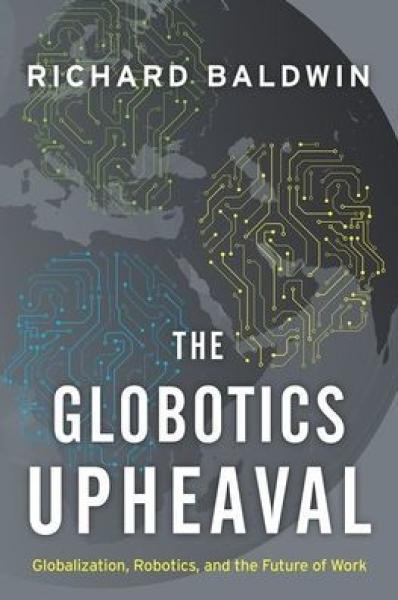Description
Richard Baldwin, one of the world's leading globalization experts, argues that the inhuman speed of this transformation threatens to overwhelm our capacity to adapt. From computers in the office to automatic ordering systems in restaurants, we are familiar with the how digital technologies offer convenience while also eliminating jobs. Globotics will disrupt the lives of millions of white-collar workers much faster than automation, industrialization, and globalization disrupted the lives of factory workers in previous centuries. The result will be a backlash. Professional, white-collar, and service workers will agitate for a slowing of the unprecedented pace of disruption, as factory workers have done in years past.
Baldwin argues that the globotics upheaval will be countered in the short run by shelter-ism - government policies that shelter some service jobs from tele-migrants and thinking computers. In the long run, people will work in more human jobs-activities that require real people to use the uniquely human ability of independent thought-and this will strengthen bonds in local communities. Offering effective strategies such as focusing on the social value of work, The Globotics Upheaval will help people prepare for the oncoming wave of an advanced robotic workforce.
This speculative book attempts to describe the future of work and explain how to prepare for it. Baldwin lays out various different attributes of working life, according to the different talents and industries involved. -- Richard N. Cooper, Foreign Affairs
Richard Baldwin has written the best book yet on the new economic era we are entering. Any worker, company or government who doesn't want to be left behind should read and consider his arguments. -- Lawrence H. Summers
With its focus on the scale, speed and scope of technological transformation, and its impact on employment, this book breaks new ground. -- Gordon Brown, UK Prime Minister, 2007-2010
Baldwin presents a compelling view of the future of work and the serious challenges ahead while there is still time to prepare. He wisely argues that we must protect workers, without necessarily protecting specific jobs as they become outdated, and that we must do more to help those who've been displaced by technology reenter the workforce and offer such individuals a strong safety net along the way.--Science magazine
An important new book that delivers a timely warning to the world's business elite . . . confirms his place as one of the most important thinkers in this era of global disruption.
--James Crabtree, Financial Times
'It might just save your life -- and your children's lives.The Globotics Upheaval is a manifesto for future-proofing our jobs and prosperity . . . His prose is snappy . . . as good a summary as you'll read of the techno-revolution that is about to hit us.
-- Sunday Times (U.K.)
Baldwin has written an engaging and informative book that guides the reader through this disruptive technological change. The Globotics Upheaval distils complex ideas into measured and understandable language that readers with no prior understanding of artificial intelligence and economics will be able to digest.--The Times (U.K.)
The first book I've come across that ties together the two main forces shaping our world--globalisation and technological change--in an accessible way.--Business Post
Provocative.--Reuters/Breakingviews
This is a thought-provoking book by a leading expert on world trade.
--Martin Wolf, Financial Times
Product Details
- Oxford University Press, Brand
- Sep 1, 2020 Pub Date:
- 0197518613 ISBN-10:
- 9780197518618 ISBN-13:
- 304 Pages
- 9.1 in * 6.1 in * 0.8 in Dimensions:
- 1 lb Weight:




